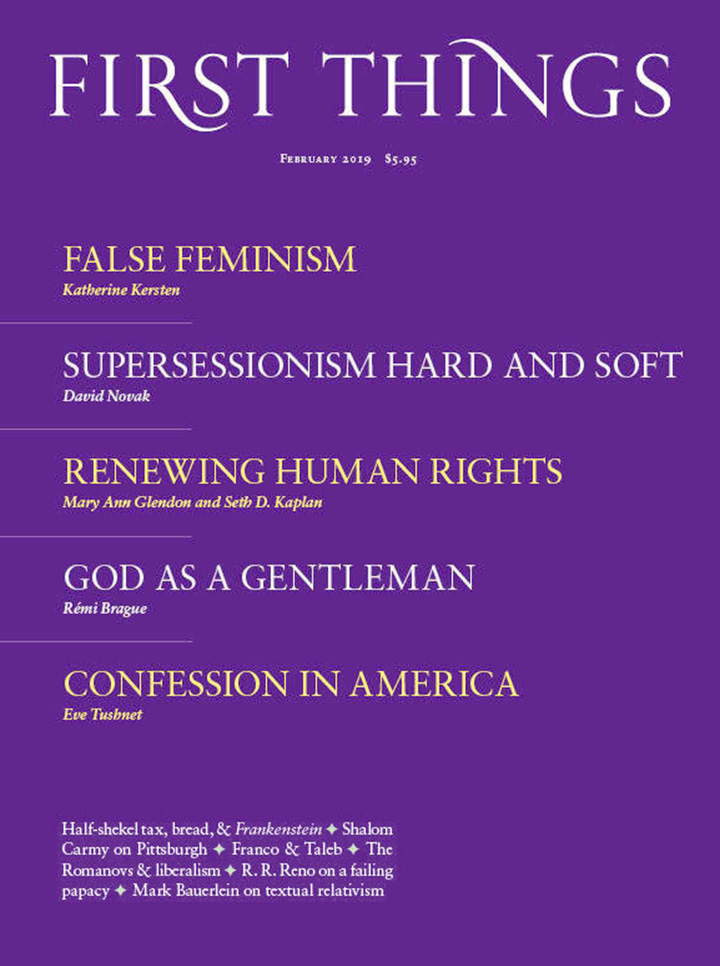Meetings with Remarkable Manuscripts:
Twelve Journeys into the Medieval World
by christopher de hamel
penguin, 640 pages, $45
Illuminated manuscripts remain cultural touchstones of the Middle Ages, symbols of forgotten learning, mystery, and beauty. Unfortunately, they are often locked away in special collections and undecipherable without hard-earned expertise. Christopher de Hamel has the expertise: During a long career at Sotheby’s, he catalogued more illuminated manuscripts than any other living person. Meetings with Remarkable Manuscripts takes readers on a tour of twelve literary treasures, bringing them to life with humor, charm, and gorgeous photographs.
My favorite illuminated manuscript, the Gospels of Saint Augustine, resides in the Parker Library at Corpus Christi College, Cambridge, where de Hamel is librarian. Legend has it that this text originated in the household of St. Gregory the Great in Rome, who sent it with St. Augustine of Canterbury to take Christianity to England. De Hamel argues that this story is likely true. The oldest surviving illustrated Latin Gospel Book in the world, it gives the Vulgate text—except in places where Gregory preferred to insert the wording of the Old Latin.
Today, the archbishops of Canterbury take their oath of office on this manuscript. De Hamel describes holding it in procession for Rowan Williams’s installation, when the parchment fluttered in time with the music. “At that moment,” de Hamel writes, “it was as if the sixth-century manuscript on its cushion had come to life and was taking part in the service.”
—Nathaniel Peters
The Hanging God
by james matthew wilson
angelico, 106 pages, $14.95
In James Matthew Wilson’s latest collection of poetry, every moment—whether sacred, profane, or somewhere in between—points back to God.
In “The Stations of the Cross” sequence, the narrator speaks in an everyday idiom as his mind wanders from news headlines, to his phone, to the story of Aeneas, to the cross. Even in moments of apparent worldliness, he concludes that “our Bodies strain for the weight you bore.” The sonnet sequence “Wiped Out” is like a photographic negative of “The Stations of the Cross.” Though the speaker recounts a relationship with a stripper, he is at least “half conscious of / the lust and lies from which I’d built my love.” These are hauntings of a prevenient grace, which, if he’s not careful, might just save him.
Though Wilson’s affinity for the sonnet is clear, the forms of Hanging God vary. Wilson comes into his voice in this collection, often opting for a plain, but not chatty, style. His references to the classical canon throughout serve not to show off, but to place myth within the context toward which it points—the true myth of our hanging (and risen) Lord. If you read one book of poetry this year, make it The Hanging God.
—Daniel Rattelle
The Year of Our Lord 1943:
Christian Humanism in an Age of Crisis
by alan jacobs
oxford, 280 pages, $29.95
Simone Weil once claimed that as long as we seek power, “our conception of greatness is the very one that has inspired Hitler’s own life.” This grotesque overstatement is a twentieth-century version of the Mote and Beam: To combat the evil of Hitler, we must combat the evil in ourselves. In The Year of Our Lord 1943, Alan Jacobs examines Weil and four other giants—Jacques Maritain, C. S. Lewis, W. H. Auden, and T. S. Eliot—who sought to combat evil and rebuild the postwar West with Christian humanism.
For Jacobs, that means they tried to “integrate literature into a specifically Christian model of education” in an attempt to answer Quid sit homo?—a question postwar society had all but abandoned. As a good teacher should, Jacobs emphasizes the five thinkers’ strengths while also pressing hard questions on them. He tackles many themes, including the influence of Augustine’s ordo amoris on Lewis’s insistence that education must properly direct our emotions, and Auden’s belief that “a humanistic education that encourages students to think vocationally is in itself a refutation of Fascism.”
Jacobs hopes these thinkers will aid current and future efforts “to renew Christian Humanism.” His masterly treatment is a step in the right direction.
—Mike St. Thomas

